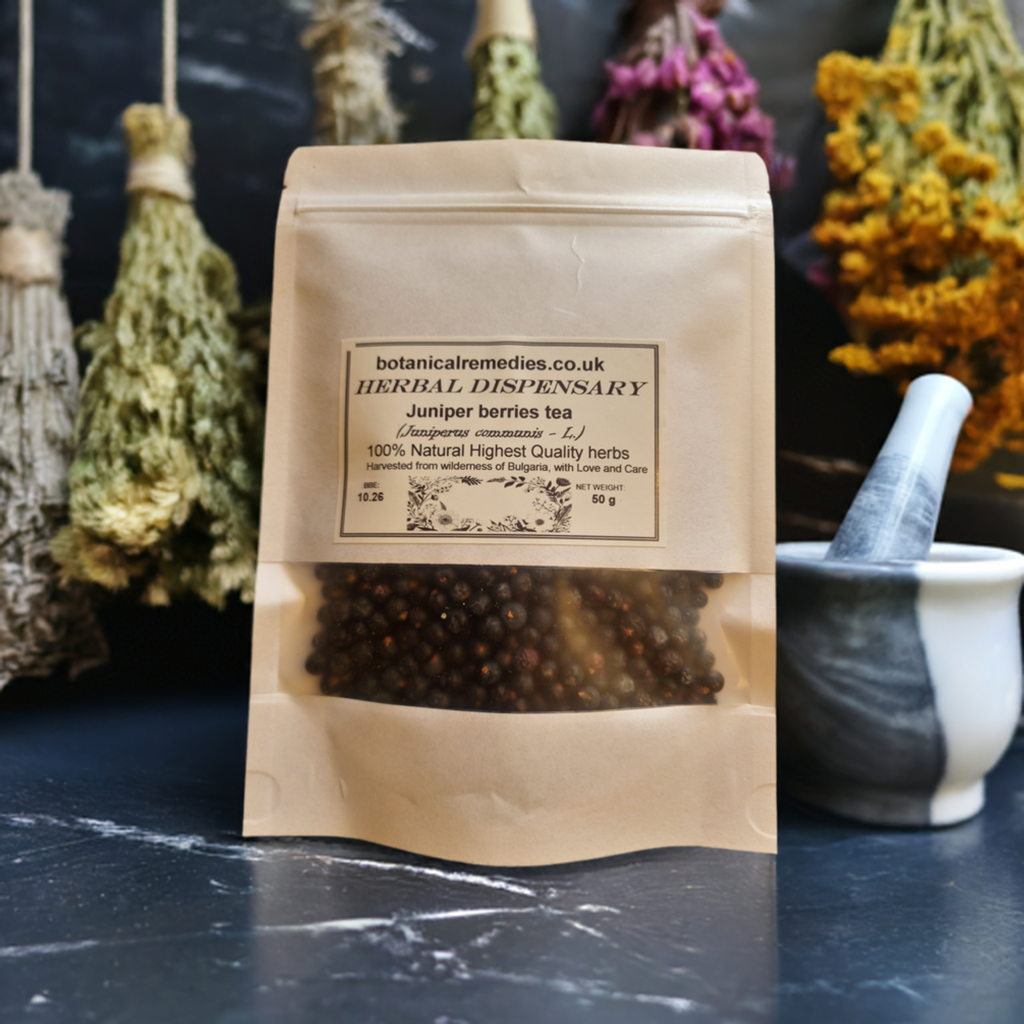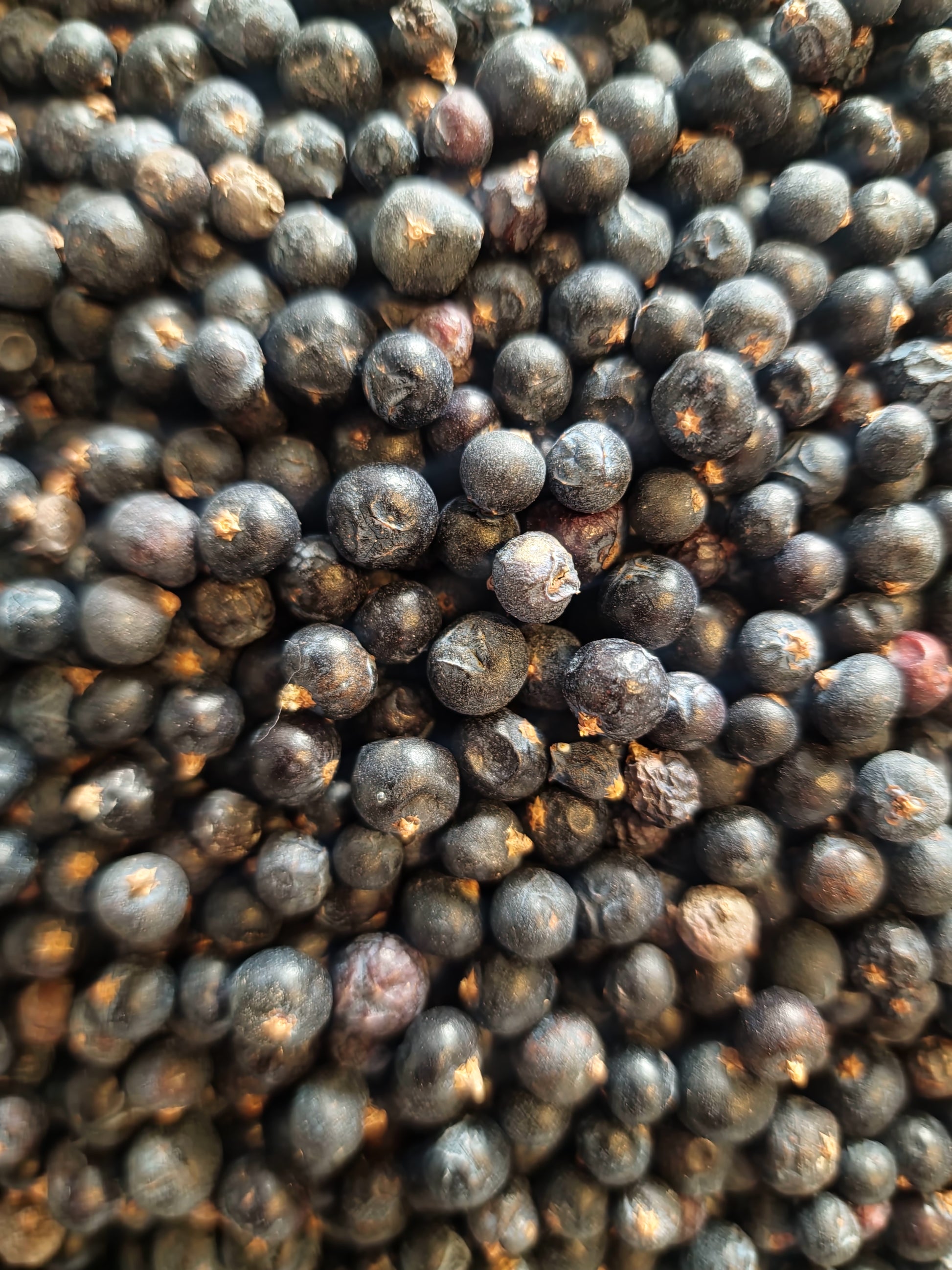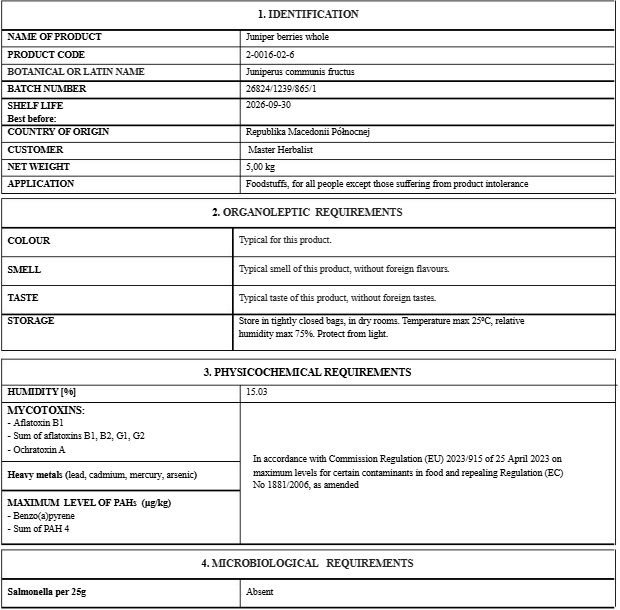Botanical remedies - Herbal Dispensary
Juniper berry tea (Juniperus communis - L.) Lab-proven Quality and Purity
Juniper berry tea (Juniperus communis - L.) Lab-proven Quality and Purity
Couldn't load pickup availability
Juniper berry tea (Juniperus communis - L.)also known as Common juniper, Du Song Zi, Genevrier, Bai de Genevrier, Huile de Genevrier, Jenever, Jalowiec. Juniper Berries have long been an important ingredient in European cuisines and were used for the delicious flavour they impart. The sharp citrus note in Juniper Berries make them perfect for both sweet and savoury dishes, they can also be used to create a delicious herbal tea.
The berry is used as a condiment in food and as a flavoring agent for gin and bitter preparations. The ripe berries are used to cook with and the green fully grown, but still unripe berries, are used to make gin. The word “gin” derives from either the French “genievre” or the Dutch “jenever” which both mean “juniper.” There is a popular European drink made of an aqueous extract of the berry called “Roob,” or “Rob of Juniper.”
The Scandinavians like to use juniper berries in their cooking to impart a “ sharp, clear flavor” to meats and wild bird dishes. The leaves can also be used by rubbing them into meats to impart flavor.
Juniper is used as a fragrance in soaps and cosmetics. The essential oil is calming and stress relieving without sedating.
Juniper berries take two to three years to ripen, so that blue ripe berries and green unripe berries occur on the same plant.
The oil is most abundant just before the perfect ripeness and darkening of the fruit when it changes to resin.
Native American Indians are reported to have used juniper berries to suppress appetite in times of hunger and some tribes are said to have used it as a female contraceptive. Native Americans also used the seed on the inside of the juniper berries as beads for jewellery and decoration.
The berries have been found inside Egyptian tombs and are believed to have been imported from Greece who used it as a medicine long before using the berries in food.
The Greeks used the berries in their Olympic games to increase stamina. The Romans used the berries as a cheap substitute for black pepper. Pliny the Elder mentions black pepper also being adulterating with juniper berries.
The branches and berries are used for ritual cleansing, purifying and protection. The smoke is considered to cleanse negative energies. In the Middle Ages Juniper bushes were planted at door entrances as a protection against witches.
Small Juvenal trees are used in the ancient art of bonsai training .
Suggested Use: Place the 1-2 teaspoon of crushed/ground berry in a saucepan (preferably not aluminium), pour on cup of water, place the saucepan lid on, bring to the boil and simmer on a low heat for 10-15 minutes. Strain and drink 3 times a day. Juniper has also other uses, research beneficial uses of this herb or consult an Herbalist as to how this product can benefit you.
Contraindications: Not recommended during pregnancy.
Typical Ingredients: 100% pure Botanical, absolutely nothing added, dried Juniper berry.
Vegetarian/Vegan Suitability: Suitable for Vegetarians and Vegans
Wild grown/Eco cultivated/Organic cultivated/Cultivated: Wild grown
Country of origin: Bulgaria/North Macedonia
Packaging: All products are hand packed in resalable paper bags to ensure maximum freshness
Quality assured
Share
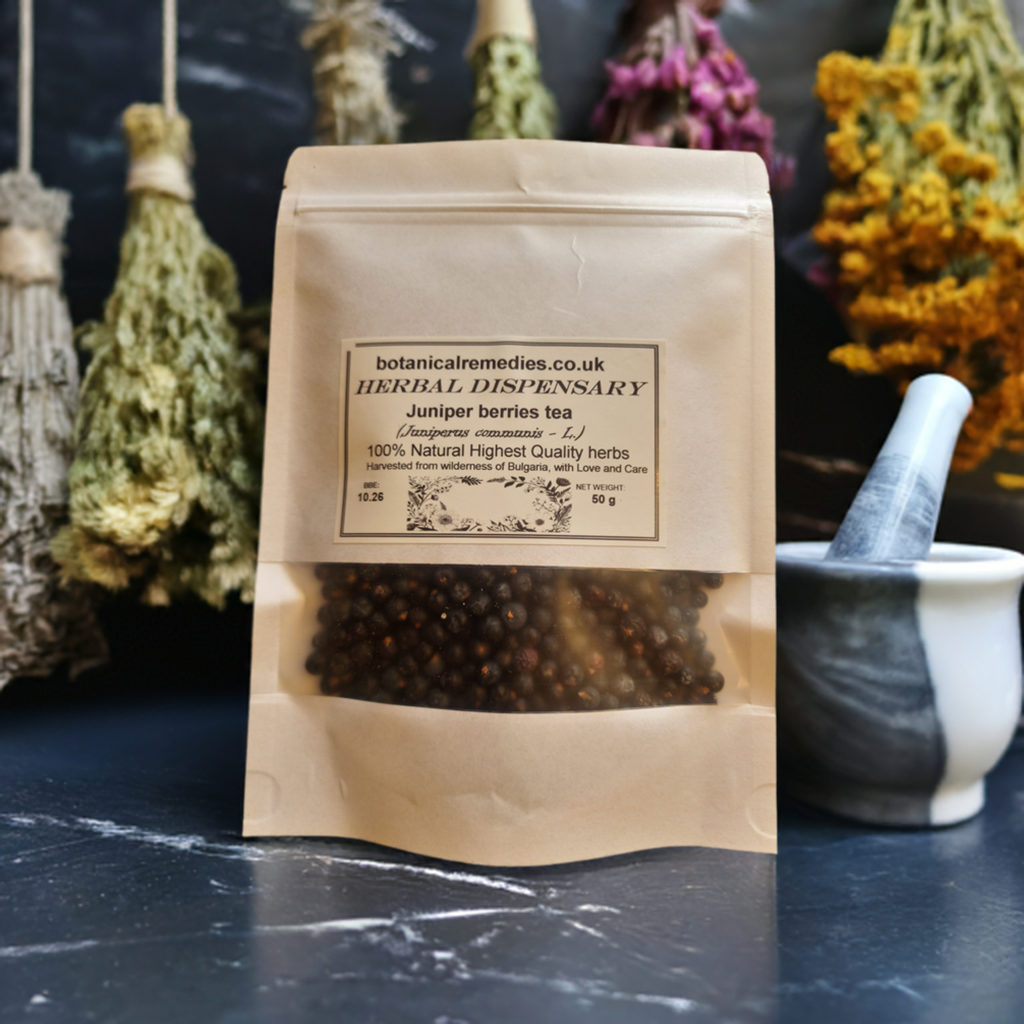
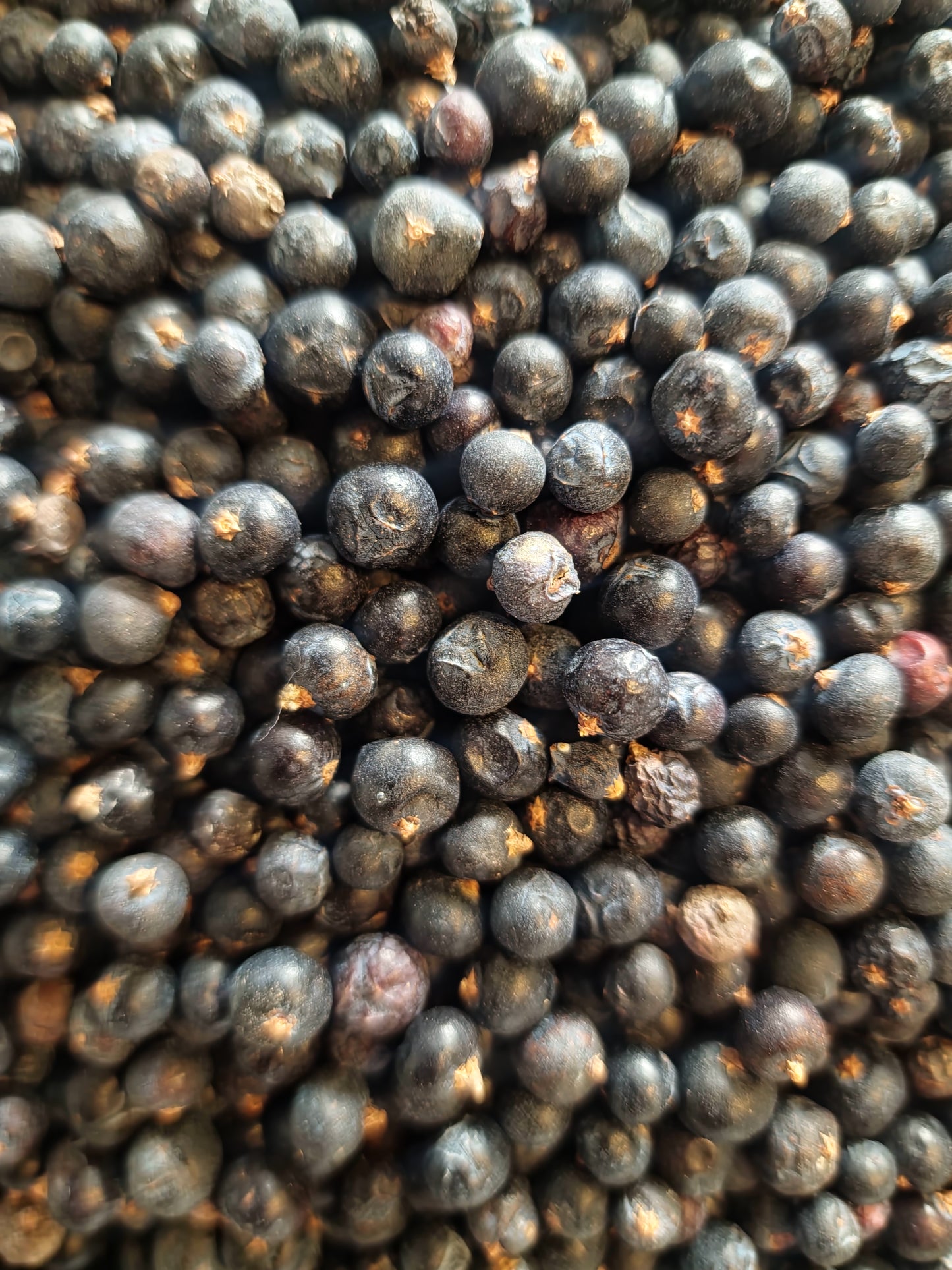
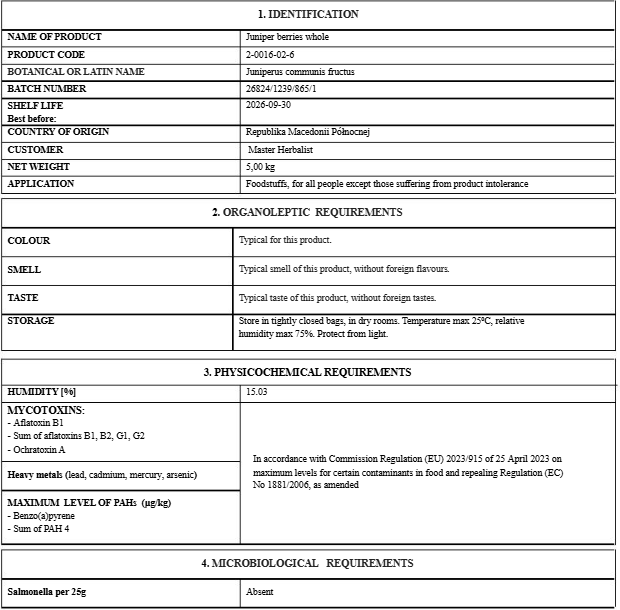

Excellent service, delivery and goods. A****
Very good seller, fast and reliable. I recommend it. Thank you.
I found it best to crush the berries before letting them brew to allow more of their natural and distinctive flavour to come through, a new firm favourite for me













